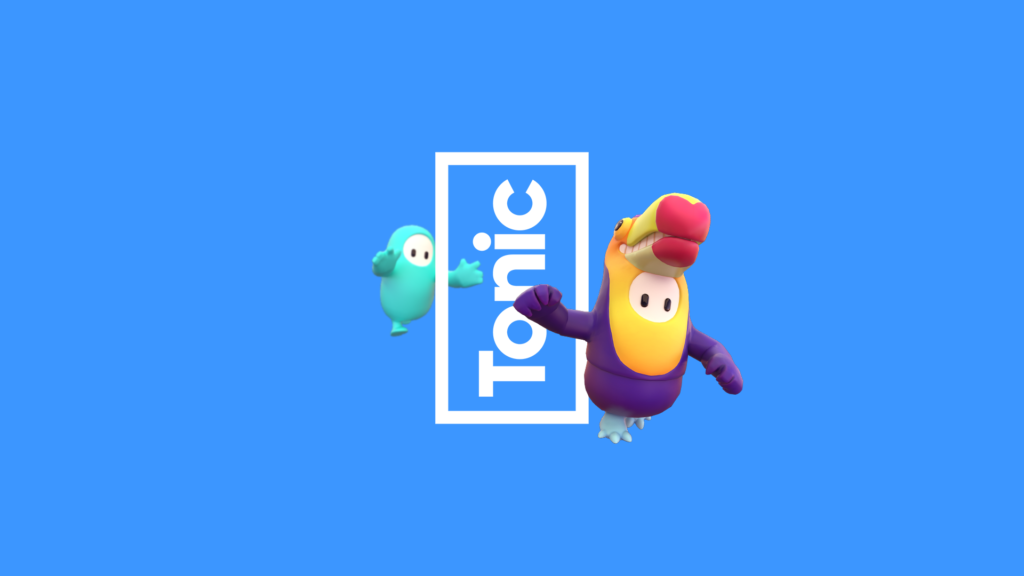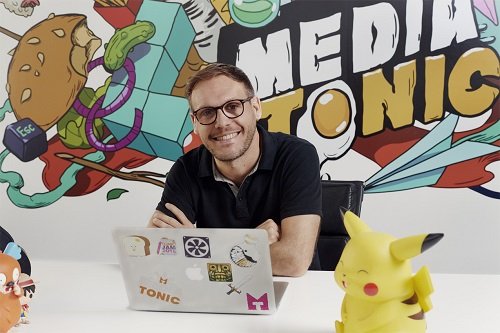
Today, the Tonic Games Group unveiled itself as the new parent company of British developers Mediatonic and Fortitude Games, as well as publishing label The Irregular Corporation, also headquartered in England. Between these three companies and a handful of smaller teams, The Tonic Games Group umbrella covers nearly 300 employees across five development studios and two publishing offices.
“We’ve been laying the groundwork for this moment for quite a long time, but we’ve been doing it kind of quietly,” Dave Bailey, co-founder of Mediatonic–and the new Tonic Games Group–told GameDaily.
Bailey said that the origins of Tonic Games Group stemmed from the desire to build games of all sizes. In the early days of Mediatonic, which was established in 2006, Bailey and co-founder Paul Croft were content to stick to smaller flash-based games, but as the company grew, so did their ambitions.
“The first thing that we did was start to make changes within Mediatonic itself,” Bailey explained. “We started to focus on deals that were less about a work-for-hire way of thinking, and more about how we make games that stand the test of time, and add value to our own business over the long term.”
Part of the strategy was to invest in other studios and creators, which eventually led to a strong and varied portfolio for Mediatonic, and after several years of growth, the pair noted that their core business could be boiled down to three primary pillars: Mediatonic, Fortitude, and Irregular.
“We wanted to redefine how these companies work together, and where we were going with this,” Bailey said. “And that’s where Tonic Games Group comes in. It’s the final step in that process.”
Bailey laid out the divisions that exist between the three main companies, noting that each one specializes in a different style of game. Mediatonic, for example, focuses on accessible, large-scale multiplayer experiences that bring people together, while Fortitude is hard at work on its first game, an unannounced original IP.
Meanwhile, Irregular’s publishing portfolio is far more niche, boasting a strong presence in simulation games and deeper strategy. Indie-sized titles, Bailey said, is Irregular’s wheelhouse.
“The Irregular Corporation really focuses on finding audiences which maybe the games industry hasn’t traditionally focused on,” he explained. “Really, what we’re trying to do there is help game developers maximize what those particular players are going to be looking for. Giving them the really deep experiences, making sure that the quality is there, and making sure the product is absolutely optimized for the audience.”
As an example, Bailey talked about PC Building Simulator, an Irregular-published sim title aimed at a very specific audience. The enthusiast audience for custom-built PCs is very large, but is relatively untapped when it comes to gaming experiences tailored to that highly-specialized group. To make sure the game was as authentic as possible, Irregular helped developer Claudiu Kiss track down and obtain the rights for a huge number of manufacturers, lending a hefty dose of brand power to PC Building Simulator.
“The Irregular Corporation went out and licensed every major hardware manufacturer’s official kit so that the game would really resonate with the audience,” Bailey said. “They’re really a company that’s focused on truly understanding the hobbies and the passions of the people that they’re building games for.”

With these roles now well-defined within the greater Tonic Games Group purview, and the financial aspect of the business more centralized, Bailey and company turned their attention to further growing the Tonic Games Group footprint. He said that on average, Tonic Games Group is adding about 12 people every month. Centrally, there are about 35 people whose job it is to support all the companies within the group.
One of the advantages of this new structure, Bailey said, is that the group as a whole is now more buoyant against unexpected changes within the greater games industry, which should help ease some of the risk associated with experimentation.
“We’re much more resilient when one company tries to do something new, or when one company gets exposed to changes in the games industry which are just natural and happen all the time,” Bailey said. “There are always new platforms, things always ramp up and down, there’s always a massive amount of change in video games. What this is doing is futureproofing us, and massively accelerating our ability to grow.”
While the timing of the announcement is natural from a business perspective, the ongoing COVID-19 pandemic lends a heavy dose of uncertainty. Luckily, the games industry is better suited than most other businesses to continue to operate under quarantine conditions and weather a resultant recession. That isn’t to say that there haven’t been any major obstacles for Tonic Games Group in this regard.
“The challenges in working from home on such a massive scale kind of play out slowly over time,” Bailey said. “The biggest thing for me is that people are raising issues, and we’re identifying problems particularly around mental health.”
The mental toll that’s demanded of extreme isolation is of paramount importance to Bailey and Tonic Games Group. The company has a number of policies in place to ensure the wellbeing of its employees, and Bailey said that there is constant outreach to support workers in this way.
“One of the things that has really surprised me is how prevalent mental health issues are in the games industry,” he said. “It’s something like 35% of people in the UK games industry census said that they are having or they have had issues on mental health. So, this is something that we’re putting a lot of effort into.”
The initiative begins with training people about how to recognize signs of depression or anxiety, and making sure they know that it’s okay to say that they’re experiencing mental hardship. This recognition, Bailey said, is baked into Tonic Games Group’s core values.
“The most important value of the group is to have a positive impact. We want to do that through the games that we make by making them positive and accessible. But it’s also about how we make the games. We’ve been anti-crunch, and trying to find ways to avoid crunch for the best part of 10 years now,” he said.
The issue of crunch is one that’s re-emerged in recent months and years, with a number of high-profile studiosadmitting to asking their workers to put in extra hours. Bailey said that not only is crunch discouraged at Tonic Games Group, but that he and the higher ups will intervene in workers’ days to ensure they’re taking proper breaks and focusing on their mental health.
“We’re running meditation sessions to break up the day, so workers aren’t just working from nine in the morning to nine at night,” he said. “There is so much volatility in video games by definition–games break out and they do really well, or products don’t sell and studios close–you see these kinds of cycles, and that’s something we’ve experienced firsthand and learned from over the years. What’s most important to us is that people have security, and that they don’t have to have those kinds of stressors in their lives on top of everything else.”
This security factors into another foundational pillar of Tonic Games Group’s business: longevity. If employees have peace of mind, their contentment can translate into long term success for the company.
Looking forward, Tonic Games Group has a number of projects in the pipeline, including 13 unannounced games, and two games in soft launch. From a personnel standpoint, Tonic Games Group has hired more than 100 new employees in the last year, with many more coming onboard each month.
Through a combination of smart business consolidation and genuine care for its workers’ mental health, Tonic Games Group seems well-positioned within the games industry. With its three core companies focused on markedly different sectors, the net cast by the group is wide, pointing to a varied portfolio with something for everyone. For Bailey, whose experience in the industry dates back to 2006, the company also represents a brand new chapter characterized by optimism and positivity.
Sam, the Editor-in-Chief of GameDaily.biz, is a former freelance game reporter. He's been seen at IGN, PCGamesN, PCGamer, Unwinnable, and many more. When not writing about games, he is most likely taking care of his two dogs or pretending to know a lot about artisan coffee. Get in touch with Sam by emailing him at sdesatoff@rektglobal.com or follow him on Twitter.
 GameDaily.biz © 2025 | All Rights Reserved.
GameDaily.biz © 2025 | All Rights Reserved.